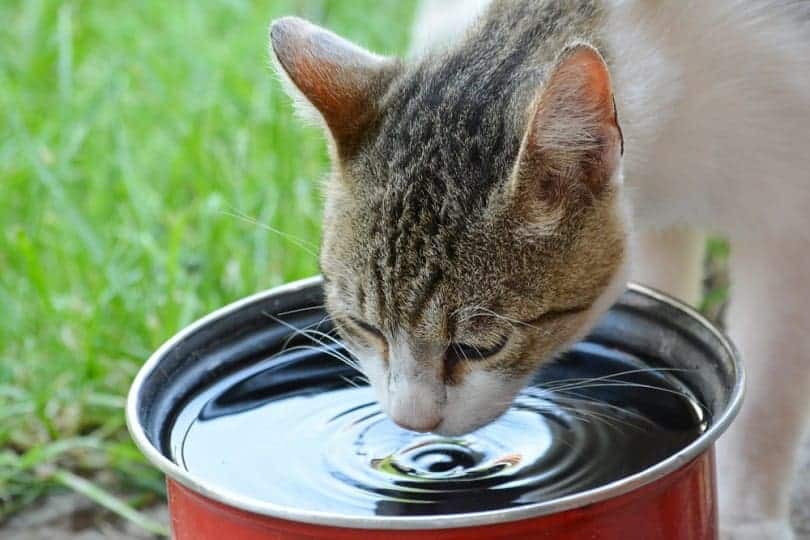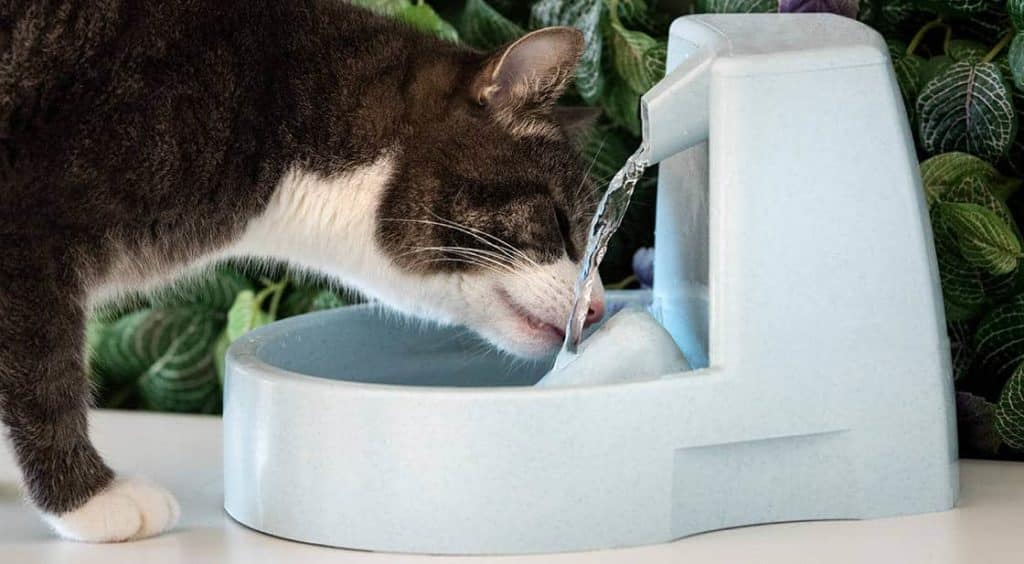If you own a cat, you always want to look after their health. After all, they are a member of the family! It should be no surprise that a hydrated pet is a healthy pet, so clean drinking water must always be available for them.
But what about sparkling water? Can cats drink sparkling water?
Yes, cats can drink sparkling water—if it is free of added flavors, sugars, and colors. If you’re curious to learn more about giving sparkling water to your cat to drink, continue reading!
Tips When Giving Your Cat Sparkling Water
Drinking sparkling water is fine for your cat. However, there are a few things to keep in mind before pouring sparkling water into your cat’s bowl.
Watch How Much You Give Your Cat
While sparkling water can keep them hydrated, too much can do more harm than good to your cat. So, it is always essential to ensure that your cat intakes the right amount so it doesn’t result in bloat. Although bloating is not deadly, it makes your cat uncomfortable and unhappy.
Check the Ingredients
Artificial flavors, sweeteners, and other substances can harm your cat. If the sparking water doesn’t have any of these synthetic additives, you can give it to your cat. But, if you notice any of them or another ingredient that you are not sure of, avoid giving the water to the cat.

Image by: AleksandarMilutinovic, Shutterstock
How Can I Safely Give My Cat Sparkling Water?
After you have checked the ingredients on the bottle, the best way to have your cat try sparkling water is to pour a little bit into their water dish. Use a dish that they are used to; this way, trying something new will not seem too strange. Pour the sparkling water while the cat is present, so they can see what is going on. It is also a fun way to watch their reaction.
Do not be disappointed if your cat is turned off by the bubbles. Some brands of sparkling water are very bubbly! Try low- or small-bubble sparkling water. Cats might be more inclined to drink this type.
How Much Water Does My Cat Need?
According to PetMD, the amount of water mainly depends on body weight. A 5-pound cat will need between 3.5 and 4.5 ounces (around half a cup) of water daily. A 10-pound cat will need 7 to 9 ounces of water (around 1 cup). Other factors include the weather and level of activity. Hot weather and being very active means your cat will need more water to stay properly hydrated.
If you give your cat wet food, there is more moisture in it than dry food. However, even if your cat is on a wet food diet, this should not replace drinking water.

How to Get Your Cat to Drink More Water
If you have a cat that does not seem to be drinking that much, here are a few things that you can try.
Make Sure the Water Dish Is Clean
Would you want to drink from a glass that has not been washed in months? No? Neither would your cat. It is a good idea to wash your cat’s water dish daily.
Check the Quality of the Water
Most people keep their pet’s water dishes on the floor. However, this means that dust, dirt, and animal hair can end up in your cat’s water. This might also deter them from drinking. Change the water daily. If you have more than one cat, you might need to change it more than once a day to ensure the water is clean and fresh!
Look at the Source of the Water
A good rule to follow is if you can drink the water safely, so can your cat. Many people in the U.S.A. can drink water right from the tap in their kitchen or bathroom. However, if you don’t drink tap water for water-quality reasons, give your cat what you are drinking, be it filtered water or bottled water.
Get Fancy
Some cats like to drink flowing water. This is why you might have caught your cat in the sink lapping at the drips from the faucet. Consider getting a pet drinking fountain that keeps the water flowing all day. The water movement can encourage cats to drink more.
Conclusion
If the sparkling water does not have added sugars, flavors, and colors, it is safe to give to your furry friend. However, sparkling water should not replace noncarbonated water. Too much sparkling water can make your cat a bit bloated and uncomfortable. Introduce your cat to sparkling water with a small amount. They might really enjoy it!
Just like yourself, hydration is an essential part of your cat’s good health. Check to make sure your cat has access to clean drinking water every day. Happy hydrating!
Featured Image Credit: stockfour, Shutterstock













